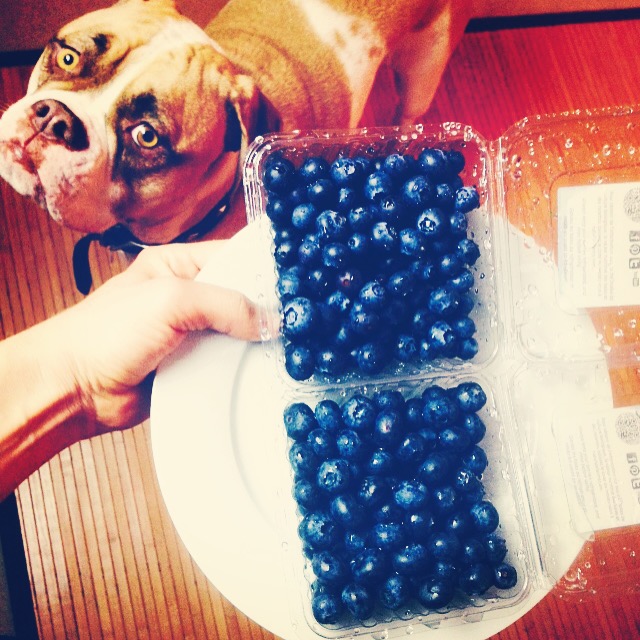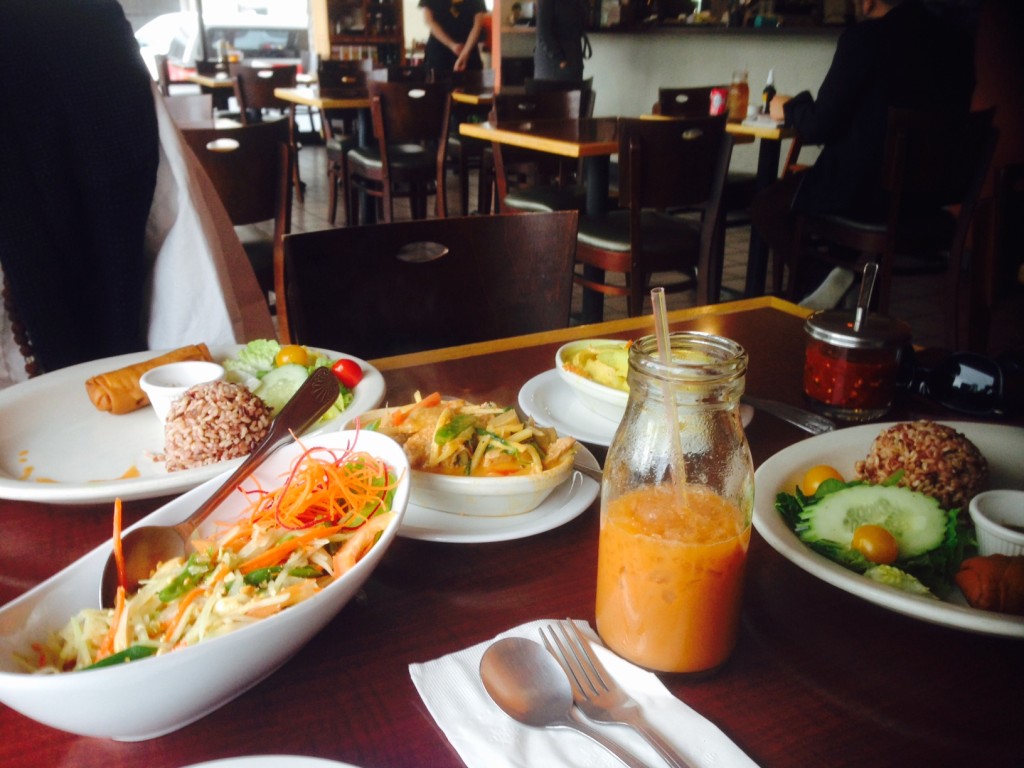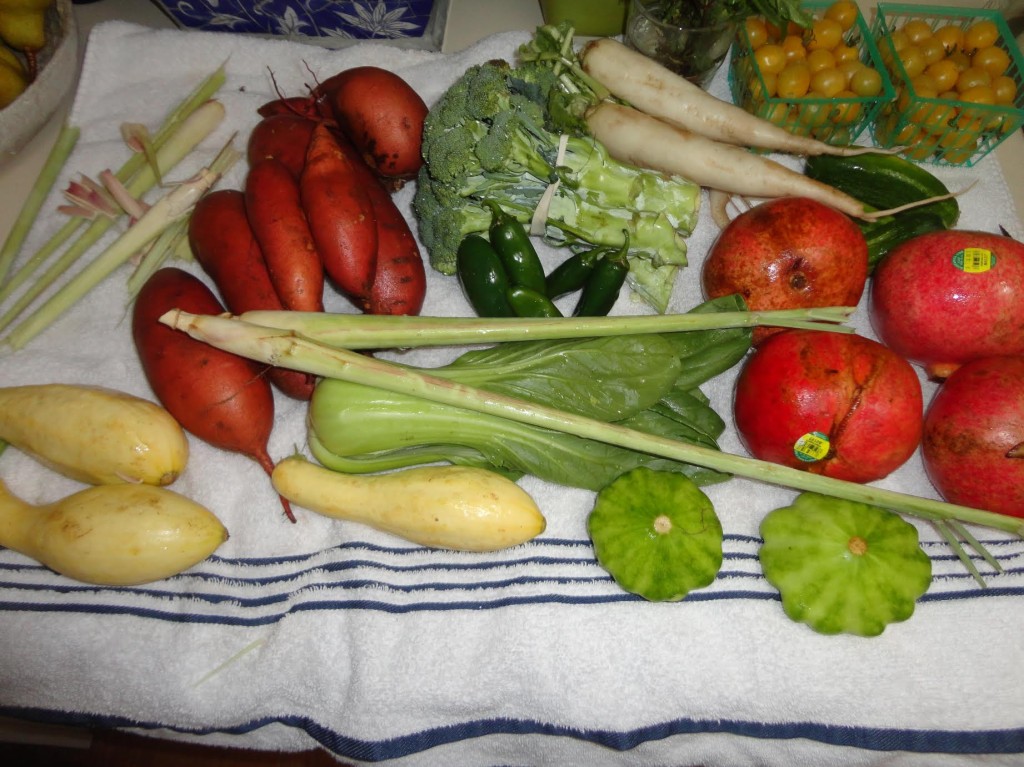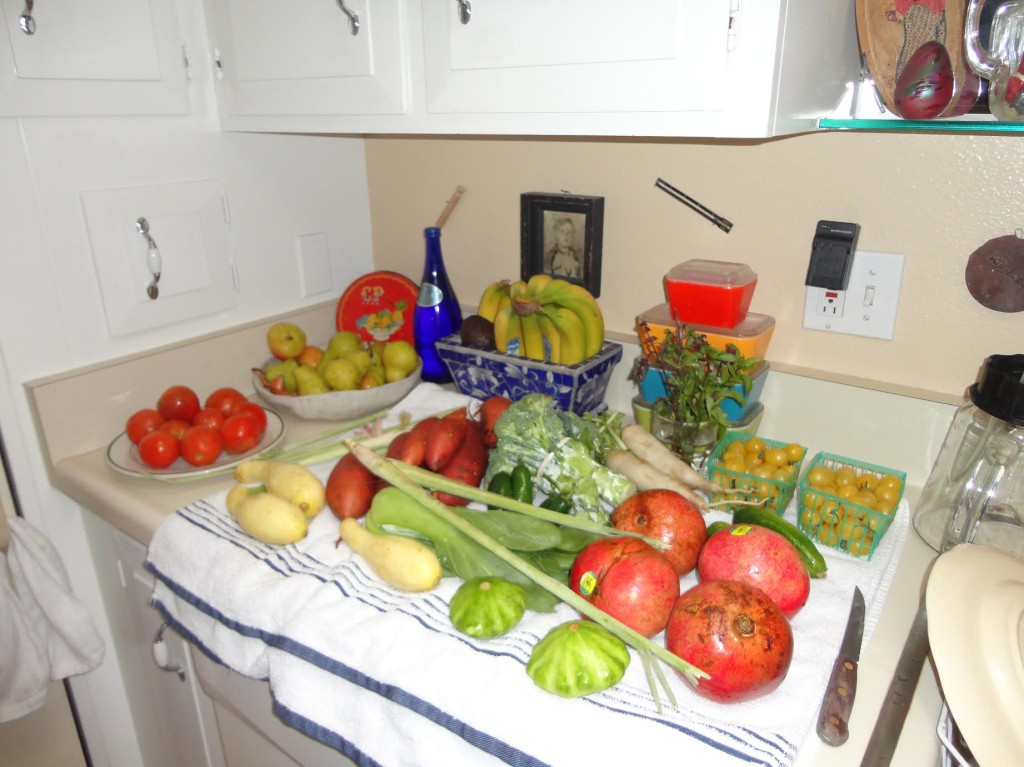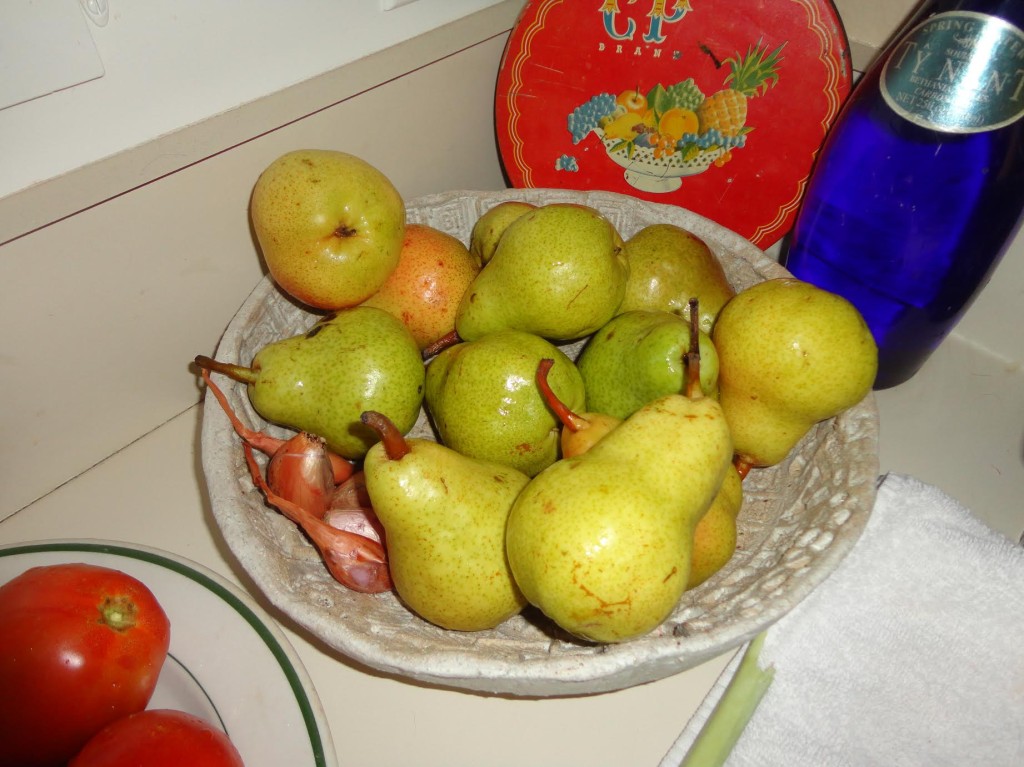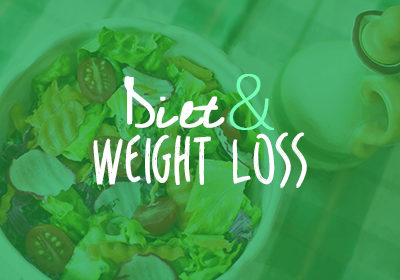Diet and Depression? Foods that Promote a sense of Well Being!
By Laura Jones-Miller
I know there are a lot of skeptics in the world… but we are fortunately living in a time of great progress. There are many studies and collections of data going on all of the world. My own personal interest in the topic of naturally treating depression and anxiety with natural remedies when one of my beautiful grandchildren started showing the signs of a “maternal family strain” of bipolar. Ali and I spoke about it at depth and she recommended we take an herbal and dietary approach. Many, many doctors, and researchers are discovering (a list of references and studies follow this narritive.) …though decades of clinical research and data collection… that a plant based diet is at the heart of treating emotional disorders…even when they are generic. Medical experts in the field of mental health and diet will…in the majority… tell you that a diet predominantly filled with plant based foods is key. When studying all of the different types of dietary plans…the only one that comes back with positive parameters…in study after study…in all areas of mental health, as well as…cardiovascular health and obesity… is a solid plant based diet filled with as many different fruits and vegetable colors as possible. This fruit and vegetable variety in diet is often referred to as “Eating The Rainbow”.
The Diet Specifics
The diet in this discussion has shown… in numerous studies… that it can lower a mood disorder tremendously. The diet consists mainly of unprocessed, plant based foods. Fresh fruits and vegetables are the majority of the diet…all of them are good for you! Some are better though…deep colored fruits and vegetables such as collard greens, kale, chard, broccoli, cabbage…both green and purple, grapes, blueberries, melon, oranges…and all citrus fruits, tomatoes, potatoes, figs, dates, guavas, papayas… the list goes on and on. Also included in this list are beans and legumes, oils and nuts (High calories however… so limited servings) high in the Omega-3s, and natural grains…think rice and and millet…and avoid processed pastas, cereals, and breads (buckwheat sourdough bread, for example, and spiraled zucchini, butternut squash and sweet potatoes in place of a pasta, and non processed oatmeal and millet make a fabulously satisfying bowl of hot porridge!). .
It is important to focus not just what you’re putting on your plate…BUT WHAT YOU ARE TAKING OFF OF IT! The foods that should be eliminated are beef, and dairy products…especially high fat dairy products. When more whole foods are eaten, and processed foods are eliminated completely, the risk of developing depression, anxiety, and dementia are GREATLY reduced.
It is important to focus not just what you’re putting on your plate…BUT WHAT YOU ARE TAKING OFF OF IT! The foods that should be eliminated are beef, and dairy products…especially high fat dairy products. When more whole foods are eaten, and processed foods are eliminated completely, the risk of developing depression, anxiety, and dementia are GREATLY reduced.
Let’s Look at why
There has been an established link between depression and the consumption of processed treats, candy, desserts, fried foods, fasts foods (all of them!), refined cereals, high fat dairy, and depression. Sub par diets have shown to cause inflammation in the body which damages the insides of veins, arteries, and the brain. This inflammation reduces the brains ability to create new cells…and these new nerve cells ability to reach out and connect with one another. This inflammation is also strongly connected to heart disease.
If you are a meat eater you should first strive on cutting WAY back on meat. One of the ways to do this (without causing drastic shock trying to change too quickly…which often causes failure) is to use tiny bits of fish or poultry to flavor a dish. Then, move to just broths, and then begin skipping days without having any meat or broths. Eventually move to complete elimination with some lovely spices and herbs for flavoring for foods. With time… your taste buds will come to prefer the clean flavors of fresh foods…the meats, dairy, and eggs will become a taste that no longer appeals. This is not a judgment. We are simply looking at a proven diet for a healthier body and mind. This diet will require more home prep and cooking. While I was still working full time, going to school, and raising the kids…I had to find a way to cook healthy in a very limited bit of time. I would set aside a piece of the weekend for cooking and freezing our meals for the week. The prep of fresh raw produce was the only thing that needed doing to complete each days meals. ***A little aside…All of my children are parents now and their children are fed in the same healthy way that I fed them…A huge added bonus and incentive!
If you are a meat eater you should first strive on cutting WAY back on meat. One of the ways to do this (without causing drastic shock trying to change too quickly…which often causes failure) is to use tiny bits of fish or poultry to flavor a dish. Then, move to just broths, and then begin skipping days without having any meat or broths. Eventually move to complete elimination with some lovely spices and herbs for flavoring for foods. With time… your taste buds will come to prefer the clean flavors of fresh foods…the meats, dairy, and eggs will become a taste that no longer appeals. This is not a judgment. We are simply looking at a proven diet for a healthier body and mind. This diet will require more home prep and cooking. While I was still working full time, going to school, and raising the kids…I had to find a way to cook healthy in a very limited bit of time. I would set aside a piece of the weekend for cooking and freezing our meals for the week. The prep of fresh raw produce was the only thing that needed doing to complete each days meals. ***A little aside…All of my children are parents now and their children are fed in the same healthy way that I fed them…A huge added bonus and incentive!
Recommendations Outline
Tips for eating if you or a loved one is recovering from clinical depression and/ or anxiety.
1. Eat a Diet High in Nutrients
Nutrients in foods support the body’s repair, growth, and wellness. Nutrients we all need include vitamins, minerals, carbohydrates, protein, and even a small amount of fat. A deficiency in any of these nutrients lead to our bodies not working at full capacity … and can even cause illness.
Nutrients in foods support the body’s repair, growth, and wellness. Nutrients we all need include vitamins, minerals, carbohydrates, protein, and even a small amount of fat. A deficiency in any of these nutrients lead to our bodies not working at full capacity … and can even cause illness.
2. Fill Your Plate With Essential Antioxidants – Eating the Rainbow
Damaging molecules called free radicals are produced in our bodies during normal body functions — and these free radicals contribute to aging and dysfunction. Antioxidants such as carotene and vitamins C and E combat the effects of free radicals. Antioxidants have been shown to tie up these free radicals and take away their destructive power.
Studies show that the brain is particularly at risk for free radical damage. Although there’s no way to stop free radicals completely, we can reduce their destructive effect on the body by eating foods rich in antioxidants as part of a healthy diet, including:
Damaging molecules called free radicals are produced in our bodies during normal body functions — and these free radicals contribute to aging and dysfunction. Antioxidants such as carotene and vitamins C and E combat the effects of free radicals. Antioxidants have been shown to tie up these free radicals and take away their destructive power.
Studies show that the brain is particularly at risk for free radical damage. Although there’s no way to stop free radicals completely, we can reduce their destructive effect on the body by eating foods rich in antioxidants as part of a healthy diet, including:
Sources of beta carotene: apricots, broccoli, cantaloupe, carrots, collards, peaches, pumpkin, spinach, sweet potato
Sources of vitamin C: blueberries, broccoli, grapefruit, kiwi, oranges, peppers, potatoes, strawberries, tomato
Sources of vitamin E: margarine, nuts and seeds, vegetable oils, wheat germ
Sources of vitamin C: blueberries, broccoli, grapefruit, kiwi, oranges, peppers, potatoes, strawberries, tomato
Sources of vitamin E: margarine, nuts and seeds, vegetable oils, wheat germ
This diet is a balanced, healthy eating pattern that includes plenty of fruits, nuts, vegetables, cereals, and legumes
Folate is found in a rainbow diet… staples like legumes, nuts, many fruits of all colors , dark green vegetables, and vegetables of all colors.
Folate is found in a rainbow diet… staples like legumes, nuts, many fruits of all colors , dark green vegetables, and vegetables of all colors.
3. Eat “Smart” Carbs for a Calming Effect
The connection between carbohydrates and mood is linked to the mood-boosting brain chemical, serotonin. Carbohydrate craving may be related to decreased serotonin activity, although experts are not sure if there is a link.
So, don’t shun all carbs — just make smart choices. Limit sugary foods and opt for smart or “complex” carbs (such as whole grains) rather than simple carbs (such as cakes and cookies), along with plenty of fruits, vegetables, and legumes, which all contribute healthy carbs and fiber.
The connection between carbohydrates and mood is linked to the mood-boosting brain chemical, serotonin. Carbohydrate craving may be related to decreased serotonin activity, although experts are not sure if there is a link.
So, don’t shun all carbs — just make smart choices. Limit sugary foods and opt for smart or “complex” carbs (such as whole grains) rather than simple carbs (such as cakes and cookies), along with plenty of fruits, vegetables, and legumes, which all contribute healthy carbs and fiber.
4. Get Plenty of Vitamin D and Sunshine
The likelihood of having depression is higher in people with deficiency in vitamin D compared to people who are sufficient in vitamin D. People who are suffering from depression… particularly those with seasonal affective disorder, tended to improve as their levels of vitamin D in the body increased over the normal course of a year. Vitamin D receptors are found in the brain. Make a point of getting out into the sunshine for about 15-20 minutes a day. Warm sun on the back is a definite mood booster.
5. Select Selenium-Rich Foods
Selenium is a mineral that is essential to good health. Low selenium intake and poorer moods otfen go hand in hand. Eating it is preferable to taking a supplement.
Selenium is a mineral that is essential to good health. Low selenium intake and poorer moods otfen go hand in hand. Eating it is preferable to taking a supplement.
***Careful with supplements It is possible to take in too much selenium so that it becomes toxic. But this is unlikely if you’re getting it from foods rather than supplements. It can’t hurt to make sure you’re eating foods that help you meet the recommended intake for selenium, which is 55 micrograms a day for adults. The good news is that foods rich in selenium are foods we should be eating anyway. They include:
* Beans and legumes
* Nuts and seeds (particularly brazil nuts)
* Whole grains (whole-grain pasta, brown rice, oatmeal, etc.)
* Nuts and seeds (particularly brazil nuts)
* Whole grains (whole-grain pasta, brown rice, oatmeal, etc.)
6. Include Omega-3 Fatty Acids in Your Diet
We know that omega-3 fatty acids have innumerable health benefits. A diet with a deficit of omega-3 fatty acids is associated with depression. Societies that eat a small amount of omega-3 fatty acids have a higher prevalence of major depressive disorder than societies that get ample omega-3 fatty acids.
We know that omega-3 fatty acids have innumerable health benefits. A diet with a deficit of omega-3 fatty acids is associated with depression. Societies that eat a small amount of omega-3 fatty acids have a higher prevalence of major depressive disorder than societies that get ample omega-3 fatty acids.
Vegan sources of omega-3 fatty acids: flaxseed, and nuts.
Sources alpha-linolenic acid (another type of omega-3 fatty acid): flaxseed, canola oil, soybean oil, walnuts, and dark green leafy vegetables.
Sources alpha-linolenic acid (another type of omega-3 fatty acid): flaxseed, canola oil, soybean oil, walnuts, and dark green leafy vegetables.
7. Watch Your Lifestyle Habits
Many people who are depressed also have problems with alcohol and/or drugs. Not only can alcohol and drugs interfere with mood, sleep, and motivation, they can also reduce the effectiveness of your depression medications. In addition, drinks and foods containing caffeine can trigger anxiety and make it difficult to sleep at night. Cutting out caffeine or stopping caffeine after noon each day can also help you get a better night’s sleep.
Many people who are depressed also have problems with alcohol and/or drugs. Not only can alcohol and drugs interfere with mood, sleep, and motivation, they can also reduce the effectiveness of your depression medications. In addition, drinks and foods containing caffeine can trigger anxiety and make it difficult to sleep at night. Cutting out caffeine or stopping caffeine after noon each day can also help you get a better night’s sleep.
8. Stay at a Healthy Weight
A link has been found between obesity and depression, indicating that people who are obese may be more likely to become depressed. In addition, according to this study, people who are depressed are more likely to become obese. Researchers believe the link between obesity and depression may result from physiological changes that occur in the immune system and hormones with depression. If you have a weight problem, talk with your doctor about healthy ways to manage it with diet and exercise.
Many blessings and hopes for a brand new day for you…Love ever, xoxox, L
If you’d like to study this topic in depth …the following list should help you find support studies and references.
***Recommended Studies for Review
References:
1. Gill A, Womack R, Safranek S. Clinical Inquiries: Does exercise alleviate symptoms of depression? J Fam Pract 2010;59:530-531.
2. Uebelacker LA, Epstein-Lubow G, Gaudiano BA, et al. Hatha yoga for depression: critical review of the evidence for efficacy, plausible mechanisms of action, and directions for future research. J Psychiatr Pract 2010;16:22-33.
3. Saeed SA, Antonacci DJ, Bloch RM. Exercise, yoga, and meditation for depressive and anxiety disorders. Am Fam Physician 2010;81:981-986.
4. Ma Q. Beneficial effects of moderate voluntary physical exercise and its biological mechanisms on brain health. Neurosci Bull 2008;24:265-270.
5. Miller AL. Epidemiology, etiology, and natural treatment of seasonal affective disorder. Altern Med Rev 2005;10:5-13.
6. Golden RN, Gaynes BN, Ekstrom RD, et al. The efficacy of light therapy in the treatment of mood disorders: a review and meta-analysis of the evidence. Am J Psychiatry 2005;162:656-662.
7. Kidd PM. Omega-3 DHA and EPA for cognition, behavior, and mood: clinical findings and structural-functional synergies with cell membrane phospholipids. Altern Med Rev 2007;12:207-227.
8. Martins JG. EPA but not DHA appears to be responsible for the efficacy of omega-3 long chain polyunsaturated fatty acid supplementation in depression: evidence from a meta-analysis of randomized controlled trials. J Am Coll Nutr 2009;28:525-542.
9. Harnack K, Andersen G, Somoza V. Quantitation of alpha-linolenic acid elongation to eicosapentaenoic and docosahexaenoic acid as affected by the ratio of n6/n3 fatty acids. Nutr Metab 2009;6:8.
10. Davis BC, Kris-Etherton PM. Achieving optimal essential fatty acid status in vegetarians: current knowledge and practical implications. Am J Clin Nutr 2003;78:640S-646S.
11. Arterburn LM, Hall EB, Oken H. Distribution, interconversion, and dose response of n-3 fatty acids in humans. Am J Clin Nutr 2006;83:1467S-1476S.
12. Beezhold BL, Johnston CS, Daigle DR. Vegetarian diets are associated with healthy mood states: a cross-sectional study in Seventh Day Adventist adults. Nutrition Journal 2010;9:26.
13. Beezhold BL, Johnston CS. Restriction of meat, fish, and poultry in omnivores improves mood: A pilot randomized controlled trial. Nutr J 2012;11:9.
14. Tsuboi H, Shimoi K, Kinae N, et al. Depressive symptoms are independently correlated with lipid peroxidation in a female population: comparison with vitamins and carotenoids. J Psychosom Res 2004;56:53-58.
15. Blanchflower DG, Oswald AJ, Stewart-Brown S. Is Psychological Well-Being Linked to the Consumption of Fruit and Vegetables? Social Indicators Research 2012.
16. Coppen A, Bolander-Gouaille C. Treatment of depression: time to consider folic acid and vitamin B12. J Psychopharmacol 2005;19:59-65.
17. Miller AL. The methylation, neurotransmitter, and antioxidant connections between folate and depression. Altern Med Rev 2008;13:216-226.
18. Ng TP, Feng L, Niti M, et al. Folate, vitamin B12, homocysteine, and depressive symptoms in a population sample of older Chinese adults. J Am Geriatr Soc 2009;57:871-876.
19. Sachdev PS, Parslow RA, Lux O, et al. Relationship of homocysteine, folic acid and vitamin B12 with depression in a middle-aged community sample. Psychol Med 2005;35:529-538.
20. Watanabe H, Ishida S, Konno Y, et al. Impact of dietary folate intake on depressive symptoms in young women of reproductive age. J Midwifery Womens Health 2012;57:43-48.
21. Torres SJ, Nowson CA, Worsley A. Dietary electrolytes are related to mood. Br J Nutr 2008;100:1038-1045.
22. Bertone-Johnson ER. Vitamin D and the occurrence of depression: causal association or circumstantial evidence? Nutr Rev 2009;67:481-492.
23. Murphy PK, Wagner CL. Vitamin D and mood disorders among women: an integrative review. J Midwifery Womens Health 2008;53:440-446.
24. Lee DM, Tajar A, O’Neill TW, et al. Lower vitamin D levels are associated with depression among community-dwelling European men. J Psychopharmacol 2011;25:1320-1328.
25. Vieth R, Kimball S, Hu A, et al. Randomized comparison of the effects of the vitamin D3 adequate intake versus 100 mcg (4000 IU) per day on biochemical responses and the wellbeing of patients. Nutr J 2004;3:8.
1. Gill A, Womack R, Safranek S. Clinical Inquiries: Does exercise alleviate symptoms of depression? J Fam Pract 2010;59:530-531.
2. Uebelacker LA, Epstein-Lubow G, Gaudiano BA, et al. Hatha yoga for depression: critical review of the evidence for efficacy, plausible mechanisms of action, and directions for future research. J Psychiatr Pract 2010;16:22-33.
3. Saeed SA, Antonacci DJ, Bloch RM. Exercise, yoga, and meditation for depressive and anxiety disorders. Am Fam Physician 2010;81:981-986.
4. Ma Q. Beneficial effects of moderate voluntary physical exercise and its biological mechanisms on brain health. Neurosci Bull 2008;24:265-270.
5. Miller AL. Epidemiology, etiology, and natural treatment of seasonal affective disorder. Altern Med Rev 2005;10:5-13.
6. Golden RN, Gaynes BN, Ekstrom RD, et al. The efficacy of light therapy in the treatment of mood disorders: a review and meta-analysis of the evidence. Am J Psychiatry 2005;162:656-662.
7. Kidd PM. Omega-3 DHA and EPA for cognition, behavior, and mood: clinical findings and structural-functional synergies with cell membrane phospholipids. Altern Med Rev 2007;12:207-227.
8. Martins JG. EPA but not DHA appears to be responsible for the efficacy of omega-3 long chain polyunsaturated fatty acid supplementation in depression: evidence from a meta-analysis of randomized controlled trials. J Am Coll Nutr 2009;28:525-542.
9. Harnack K, Andersen G, Somoza V. Quantitation of alpha-linolenic acid elongation to eicosapentaenoic and docosahexaenoic acid as affected by the ratio of n6/n3 fatty acids. Nutr Metab 2009;6:8.
10. Davis BC, Kris-Etherton PM. Achieving optimal essential fatty acid status in vegetarians: current knowledge and practical implications. Am J Clin Nutr 2003;78:640S-646S.
11. Arterburn LM, Hall EB, Oken H. Distribution, interconversion, and dose response of n-3 fatty acids in humans. Am J Clin Nutr 2006;83:1467S-1476S.
12. Beezhold BL, Johnston CS, Daigle DR. Vegetarian diets are associated with healthy mood states: a cross-sectional study in Seventh Day Adventist adults. Nutrition Journal 2010;9:26.
13. Beezhold BL, Johnston CS. Restriction of meat, fish, and poultry in omnivores improves mood: A pilot randomized controlled trial. Nutr J 2012;11:9.
14. Tsuboi H, Shimoi K, Kinae N, et al. Depressive symptoms are independently correlated with lipid peroxidation in a female population: comparison with vitamins and carotenoids. J Psychosom Res 2004;56:53-58.
15. Blanchflower DG, Oswald AJ, Stewart-Brown S. Is Psychological Well-Being Linked to the Consumption of Fruit and Vegetables? Social Indicators Research 2012.
16. Coppen A, Bolander-Gouaille C. Treatment of depression: time to consider folic acid and vitamin B12. J Psychopharmacol 2005;19:59-65.
17. Miller AL. The methylation, neurotransmitter, and antioxidant connections between folate and depression. Altern Med Rev 2008;13:216-226.
18. Ng TP, Feng L, Niti M, et al. Folate, vitamin B12, homocysteine, and depressive symptoms in a population sample of older Chinese adults. J Am Geriatr Soc 2009;57:871-876.
19. Sachdev PS, Parslow RA, Lux O, et al. Relationship of homocysteine, folic acid and vitamin B12 with depression in a middle-aged community sample. Psychol Med 2005;35:529-538.
20. Watanabe H, Ishida S, Konno Y, et al. Impact of dietary folate intake on depressive symptoms in young women of reproductive age. J Midwifery Womens Health 2012;57:43-48.
21. Torres SJ, Nowson CA, Worsley A. Dietary electrolytes are related to mood. Br J Nutr 2008;100:1038-1045.
22. Bertone-Johnson ER. Vitamin D and the occurrence of depression: causal association or circumstantial evidence? Nutr Rev 2009;67:481-492.
23. Murphy PK, Wagner CL. Vitamin D and mood disorders among women: an integrative review. J Midwifery Womens Health 2008;53:440-446.
24. Lee DM, Tajar A, O’Neill TW, et al. Lower vitamin D levels are associated with depression among community-dwelling European men. J Psychopharmacol 2011;25:1320-1328.
25. Vieth R, Kimball S, Hu A, et al. Randomized comparison of the effects of the vitamin D3 adequate intake versus 100 mcg (4000 IU) per day on biochemical responses and the wellbeing of patients. Nutr J 2004;3:8.

